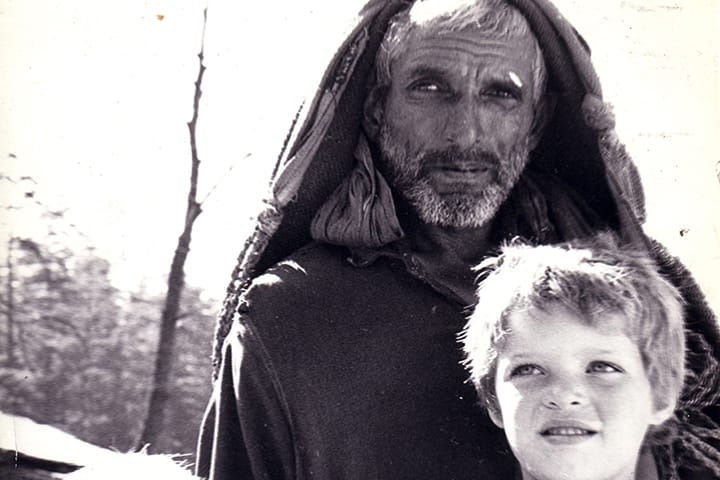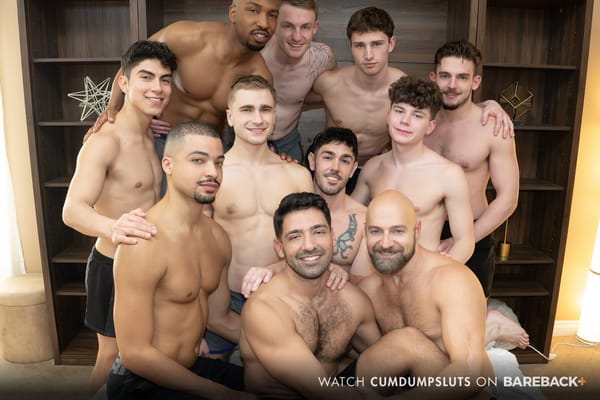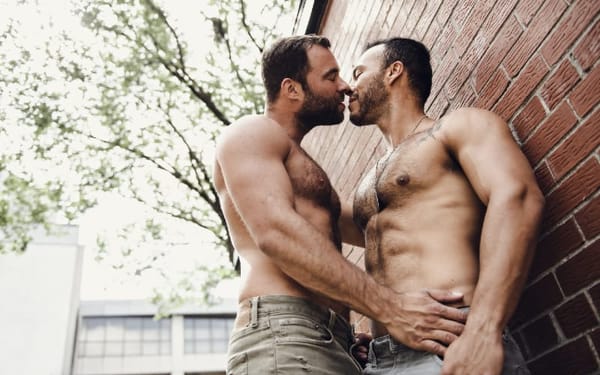What to watch: Commune
A re-release of Jonathan Berman's film to mark it's 20th anniversary.

Marking the 20th anniversary of the release of the documentary, Commune, the film has been re-released and is discovering fresh audiences.
The documentary takes us inside the countercultural movement that sought to create a different path for people in the United States in the 1960s.
In Commune, filmmaker Jonathan Berman gives us the story of Black Bear Ranch - a remote commune in the rugged wilderness of Northern California.
The residents braved brutal winters, constant negotiation over competing visions of utopia, and even the intrusion of a radical cult that threatened their very being.
Yet amid these tensions, they ultimately forged lasting contributions to society in areas like alternative health and healing, feminism, and a DIY ethic that would ripple far beyond their remote mountain valley.
For our podcast, How To Date Men, we caught up with Jonathan Berman for a behind-the-scenes look at the film.
In the conversation, we talk counter-culture, challenging gender roles, and history repeating.
Commune tells the story of the people of Black Bear Ranch in Northern California. How did you come to make a film about this facet of counterculture America?
I grew up in the shadow of the 60s. One of the formative books I read as a child was Abbie Hoffman's Steal This Book. So it was just in my genes.
I was pitching a film about barbecue in the Carolinas. I pitched it to a philanthropist. And he was like, No, I'm not interested in that. And I was like, well, what are you interested in? And he said, well, stuff that's off the grid.
That night, I searched around online and found this book that all the various members of the Black Bear Ranch wrote together. Everybody wrote three or four pages. I was just immediately stuck by the controversies and contradictions in their stories. One story was about, you know, animals are species and we shouldn't be speciesist and they should be let free. And then another story was, well, don't bring your dog up here because it's not a spa. And if you bring them, we might eat them.
They were like, come up, we're having a reunion, come meet everybody and let's see if it's a fit.
At that first meeting, did you automatically have a sense of there's a film here, there's a story to be told, or were you still figuring that out as you started to build trust and build that relationship with the key people?
I think my Spidey sense said that this is a fertile ground. Every film is like a miracle - when it comes together and there's an arc in a story, you're really grateful.
One of the things that happened at Black Bear Ranch was the cult that came along. Narratively speaking, it was all there - there was great people, great characters.
I wanted to ask you about the cult that you're referencing. It's the Shivalila, which seemed a fairly pivotal moment for the Black Bear Ranch. Can you talk about why that was an important episode to include in the documentary?
It was the crucible.
There was conflict within the Black Bear community - you came here for this reason and I came here for that reason. I came here to start a guerrilla army and you came here to learn how to make herbs that heal people. Those were fertile, midpoint conflicts, but they were all somehow coexisting.
But the ultimate test was this cult that comes along. Some of the people from Black Bear became embedded with them literally and figuratively. Families were ripped apart because they took the kids and went off to foreign lands.
It's 20 years since the film was first released. How has your perspective about the film and its subject matter evolved over that time?
When the film first came out, we did really well. Critics liked it. I think the film holds up.
But I think it's just so much more important now, given the state of the world with the current occupants of the White House and other thugs around the world just kind of bearing down upon people. It's beyond left and right.
Certainly, super-right people understand the importance of knowing how to live off the grid and in the woods and have your own form of organisation.
How fluid were people's sexual identities at the time that Black Bear was established? The film didn't seem to capture anything inherently clear queer about the relationships, but was that implied in the rejection of the construct of nuclear families?
My understanding of it is you had various gay liberation movements happening at the same exact time. In the film, we see a discussion of women's liberation.
That was really striking - to hear the women talking about their role in the community there and actually trying to rethink some of those traditional constructs of feminism and masculinity that they were sort of figuring out in real time somehow?
Looking at it more like a laboratory or a school makes more sense or a workshop or something. You have to be willing to learn. I think that was an important part of it.
The Black Bear Ranch continues today as a commune. Is that a way of living that appeals to you at all?
I think having community is really important.
Now, you don't even need to go out, but you should. You should meet your neighbours - that's really important to me.
But experimental group living is not exactly my scene.
What do you hope that people feel when they're watching Commune?
The best possible thing is that people can apply these questions to their own lives. Opening up and asking questions.
We did a screening the other night in upstate New York, and what came up was like, well, what does government do anyway? What does the federal government do?
So if you can get to some big questions for you, then that's great. Or if you leave and you have a discussion - it's a sign of a good screening when people stick around to chat.
The NSFW edition
If you want to admire some man-on-man action, our NSFW edition gives you every inch.
Sign in and check out our NSFW content - it's free!








